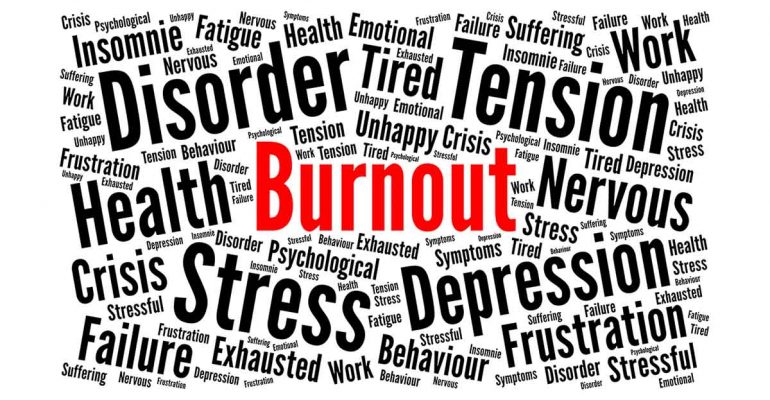Within the constant ebbs and flows of life, we are seeing caregivers and providers experiencing states of emotional, mental, and physical exhaustion caused by prolonged or repeated stress. This is defined as burnout. Burnout is not simply work overload; it is a result of long hours, taking on too many tasks, and feeling a loss of control.
Know these experiences are valid, and if you are experiencing burnout as a caregiver or as a provider, it’s important to care for yourself. Here at VitalCare, we value the selfcare of our providers so we can provide the best care to our clients, and many client relationships include those of caregivers as well: such as parents, primary guardians, or family members and friends.
Burnout can lead to feelings of Depression, cynicism, lethargy, and exhaustion. A large study documented on healthline.com article states, “caregivers who felt that they were under a lot of strain had poorer health outcomes compared to caregivers who felt little or no strain.” A study published regarding burnout for providers states, “National studies suggest that over 50% of providers experience symptoms related to burnout, which is significantly higher than the general population.”
Signs of burnout can vary per individual, but some common experiences may include:
- Body aches and pains
- Fatigue
- Changes in appetite
- Insomnia
- Feeling anxious or overwhelmed
- Loss of concentration
- Feeling impatient or irritated
- Lacking motivation or a loss of interests that were previously preferred
- Constant worry, hopelessness, or isolation
For providers, burnout can look like:
- Emotional exhaustion
- Depersonalization
- Feeling a lack of competence/self-efficacy
- Increased mistakes/errors at work
- Safety issues for client/providers
- Lack of engagement
- Poor retention rate
- Poor customer/client satisfaction
Although these signs are seen, this is not a complete reflection of what everyone can experience. What’s important regardless of if you are a provider or caregiver is to take care of yourself. Give yourself compassion, patience, and prioritize selfcare.
Some suggestions for selfcare include:
- Asking others for help/support
- Practicing healthy boundaries by accepting your capacity
- Talk to other caregivers/providers
- Take regular breaks
- Attend social activities
- Prioritize needs – eating healthy, exercise, taking in sunshine
- Maintaining sleep schedule
- Mindfulness – building awareness of current state
- Evaluate alternative options
Selfcare is not limited to these options. It can look like engaging in a preferred activity, taking a bubble bath after a long day, or even listening to a favorite song and singing along. Even making a favorite meal can be an act of compassion for yourself. The ultimate focus should be easing discomfort, exhaustion, and those symptoms that accompany burnout.
If you are experiencing burnout and would like to explore professional support, VitalCare offers therapy services as well as recommendations for managing symptoms you may be experiencing.
Sources for this article originated form the following websites:



